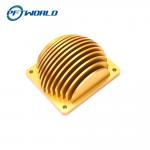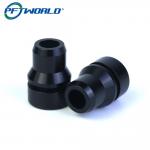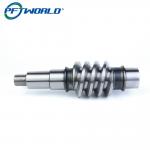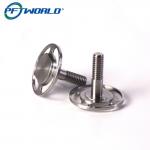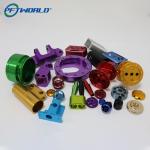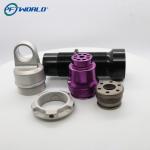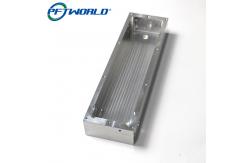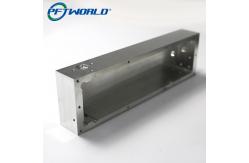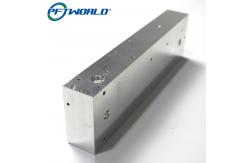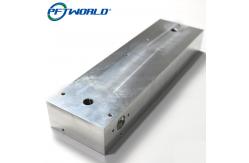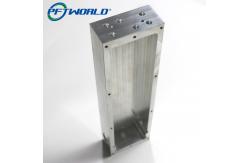Machining CNC precision milling parts, drilling parts
1. Keywords: CNC stainless steel parts
2. Process: CNC processing
3. Color: according to your requirements
4. Origin: Guangdong, China
5. Use: widely used
6. Drawing format: 2D/(PDF/CAD) 3D (IGES/STEP)
7. Equipment: CNC machining center
8. Delivery time: 1-2 weeks
Difference between milling machine and lathe
Technical column 2021-10-29
The diversity of modern manufacturing machines can be overwhelming.
This article will focus on the two most common machine categories,
and compare the use of milling machines and lathes.
What is a lathe?
A lathe makes cylindrical parts by rotating material on a
stationary tool. Using a lathe to make parts is called turning. The
raw material is fixed in a high-speed rotating chuck - the rotating
axis is called the C-axis. The tool of the lathe is mounted on a
tool holder, which can move parallel to the C axis (represented by
movement along the Z axis) and perpendicular to the C axis (X axis
movement). On the CNC lathe, by controlling the X and Z positions
of the tool rest at the same time, it is possible to change the
speed of some features and turn complex cylindrical geometry.
More advanced lathes have automatic tool changer, part catcher for
serialized production, and power tools that allow certain milling
functions. The material needs to be fixed in the chuck, and in some
cases, its tailstock needs to be supported. Lathes are good at
manufacturing cylindrical parts with very strict tolerances and
repeatability. The lathe is not used for parts whose main features
are off axis. Parts with off-axis features cannot be turned on a
lathe without additional tools. For example, the lathe can only
drill holes on the central shaft by installing a drill on the
tailstock; In standard turning operations, eccentric holes are
usually not possible.
What is a milling machine?
Unlike a lathe, a milling machine holds the material in a fixture
and uses a rotating tool to cut it.
There are many different configurations of milling machines, but
the most common is to allow the operator to move parts left and
right along the X axis, and move parts back and forth along the Y
axis. The tool moves up and down along the Z axis. CNC milling
machines can simultaneously control movement along these axes to
create complex geometry, such as surfaces. This main type of
milling machine is called 3-axis milling machine.
Specification:
| Supplier type | Integrated manufacturer of industry and trade |
| Processing Technic | Sandblasting+ Natural oxidation |
| Certification | ISO9001:2015,ISO13485:2016 |
| Supply ability | Unlimited |
| Brand Name | 7 swords |
| Service | OEM&ODM,Custom |
| Price | Direct factory price |
FAQ:
Q: Is your company committed to the concept of total quality
management?
A: Yes, no matter bending, laser cutting or CNC processing, workers
will conduct first sample inspection and random inspection during
processing to ensure product quality.
Q: How many inspections should be carried out for a project?
A: Generally speaking, the following four inspections will be
carried out for products: incoming inspection, first production
inspection, sampling inspection and pre shipment inspection. Among
them, multiple sampling inspections will be conducted.
Q: Can you review the drawings with our engineering team and
provide a quick estimate of the changes required?
A: Yes, our engineers are quick. If there is anything in the
product that needs to be modified, we can give you a new price
immediately after you tell us.
